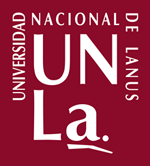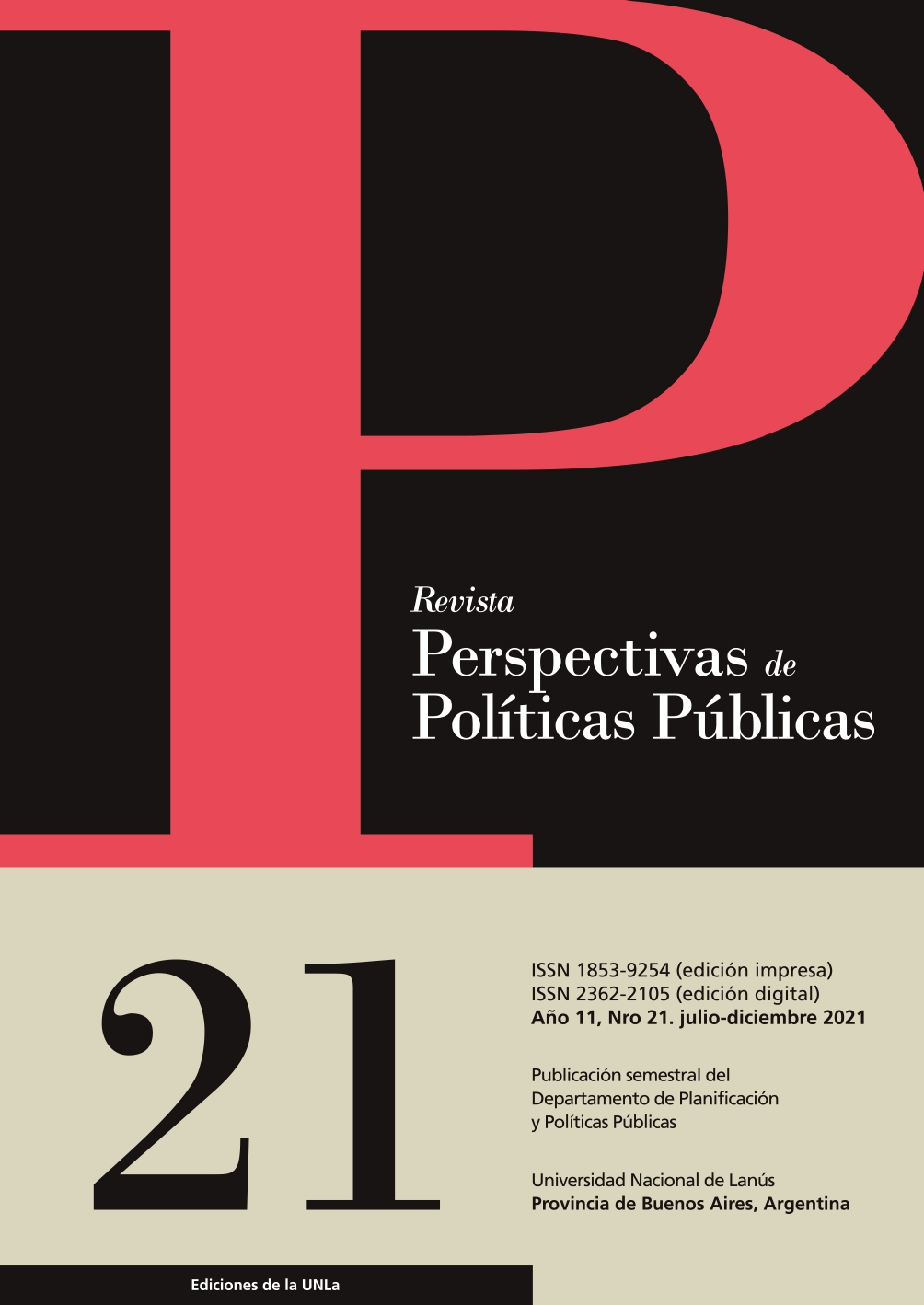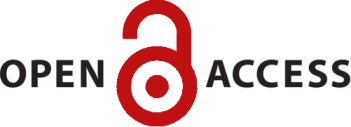Editorial
Abstract
The article by Chantal Medici that opens this issue of the magazine discusses critical contributions to the conventional theory of collective action inherited from the works
seminars of Charles Tilly and the assumption of the sharpness of a hypothetical boundary between
the public and the private, grouping them into three types of approach: those that emphasize
the institutional activism of the State, those that do it in the construction of networks or communities of political attention and those that give special to the public / private articulation
in the construction of the problem and in its implementation. Revised contributions
are connected with a variety of approaches from Political Science, in particular the thesis
of Lindblom on the relationship between states and markets in policymaking
public, Migdal's statement about “the State in society” or, in our America, the
Carlos Matus' theory on the complexity of the social game.
Sofya Surtayeva's text shows the strategic role of the State in gestation and development
of a public policy in a highly complex matter, in a country on the semi-periphery of the
capitalism. Almost two decades ago our compatriot Hugo Notcheff demonstrated the close
linking the dependent character of Argentine capitalism and the consequent fragility
of science and technology policy, with the guidance of the economic leadership
towards the appreciation of its capital by means of obtaining extraordinary profits from
the exploitation of natural resources, the availability of cheap labor and the obtaining of
subsidies and other state-owned, much more than the stimulus to innovation
technological scientist and a policy aimed at its development. The corollary is a modernization of the economy
based on the importation of innovations from the central economies, favored by close integration with foreign capital,
with an effect on the fragility of scientific and technological development policies and the preservation of dependency.
Taking as a common thread the role of the National Atomic Energy Commission in
the development of nanotechnology the author shows the peculiarities of a process of
innovation in a double facet: the promotion of an area of knowledge and the promotion by
the CNEA of its own approach more akin to a sustainable development strategy and greater
national autonomy. The article also provides a detailed approach to plurality
of actors and interests, the relevance of leadership in the definition of politics and the gravitation
of all this in the scientific-technological development and the insertion in the subject and the gravitation
of the different possible responses in the insertion of Argentina in the global system.
In this line of elaboration, Mariano Gil describes the public policies implemented in the
province of Santa Fe to address problematic substance use. His work
highlights the various public, private and community actors that intervene with unequal
effectiveness in the construction of the problem, the incidence of that construction in the actions and
organisms that will have to face it, the modifications that the adopted policy undergoes
as it is being implemented and that same implementation introduces changes
in the settings, in the subjects to whom it is addressed, in the state apparatuses and in the agents
who are in charge of implementation. Bureaucrats, political decision-makers, non-governmental organizations, families, public security organizations, professionals and health technicians make up a wide range of subjects that intervene in the management of politics. For his part
Miguel Alfredo and Pablo Granovsky deal with two experiences of training centers
professional within the framework of actors that intervene at the intersection between
education policies, labor policies and categorical organizations: the management cases
of professional training policies of the UOCRA (Unión Obrera de la Construcción
of the Argentine Republic) and the SMATA (Union of Mechanics and Transport Related
Automotive). The article by Pablo Schamber and Francisco Suárez offers a detailed analysis
of an experience of state / social actors articulation in the execution of a policy
urban environment, through the inclusion of informal collectors of recyclable waste
in the state policy of waste management. An experience that, in the opinion of
authors, surpasses any other existing in the world.
Beyond the specificity of their study topics, the three articles highlight the plurality of actors who participate from both "side" of the public-private differentiation in each of these topics, in the effort to configure a policy that is forever
tool of a construction of power that, insofar as it institutionalizes
some form of transaction between those who participate, is projected towards more
broader than the specific ones.
The promotion of public education is normally presented as a way for the
reduction of levels of social inequality: a typical “window of opportunity”.
Judith Pinos Montenegro discusses this issue in her work on the promotion of basic education in Ecuador during the governments of the Citizen Revolution. The polysemy of the word equality stands out as it appears in official documents, increased
due to the multiethnic nature of Ecuadorian society and the cultural contradictions and
of class that are registered between public and private education. Jose Candelario Osuna
García addresses the issue from the perspective of the temporary displacement of thousands of low-income Mexican families for work reasons, which leads to the interruption of the school career of the children and young people involved in these migrations and relativizes
in this regard, the principle of equality in access to the right to education. Article
focuses on the Education Program for Migrant Populations prepared by the government
of the state of Baja California, in order to minimize the risks in terms of training
school and cultural derived from the insertion of families in the cross-border structure
of the labor market and the productive system.
It is easy to see then that the mode of insertion in the social matrix conditions the
effective access to rights. Poor peasants, migrant workers, native populations referred to in the preceding texts see their opportunities reduced
education because of the position they occupy in that social matrix; in the absence of intervention
state inequalities are strengthened because the educational system does not comply with these
subjects the promotional function that should contribute to a change in their position in the structure. The political regime, with its own conception of equality, reinforces and expands or
limits and neutralizes the dominant system of inequalities. Aristotle twenty-five centuries ago
He emphasized that the prevailing ideas regarding equality and inequality and their causes vary according to the political regime, that is, to the organization and distribution of power.
By changing the political regime, sooner or later the ideas of equality change, and therefore
justice promoted by the State and public policies. The assumption in Uruguay in
March 2020 of a neoliberal government implied important changes in policies
social in general and care in particular, in sharp contrast to those that characterized
to the fifteen previous years of government of the Broad Front. Ximena Baráibar Ribero
analyzes the conceptualization of the new government's policy of assistance to populations in
situation of poverty: a set of actions to encourage individual self-improvement and
personal responsibility of those affected, and a residual role of the State. Poverty and inequality are, in the intellectual design of the new authorities, individual phenomena both in
its causes as well as its effects. Social policies would have no other purpose than to facilitate a
transit to individual opportunities that are assumed discursively, not discussed as
reality and leave aside the question of the social, that is, collective, factors that create
conditions for the gestation and development of individual situations.
Carlos M. Vilas
director






